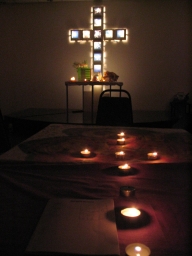
In these chapters, our authors discuss the many obstacles and need for balance between the individual spiritual life and the need to reach out to others. While it may be hard to imagine now, Ignatius had to warn the early Jesuits about dedicating too much time to isolated prayer and harsh penance. Our authors note an early attempt to strike a balance between "the tensions of desires with regard to union with God and service to neighbor." (pg 29) It was the particular Jesuit vision to find God in the world and in all things. However, our authors also note that "Friendships in general are risky, difficult to develop, and often messy." (pg 39). What are your own thoughts on this balance of finding time for yourself, while also being encouraged and supported through friendships? Does this mission of spirituality lead one to being "walked on" rather than asserting one's individual needs? What do you think of that type of spirituality that focuses on finding God in isolation and contemplation (like a cloister community)? What are some other themes or topics from these chapters that interested you? Remember to comment on each others posting as well.


